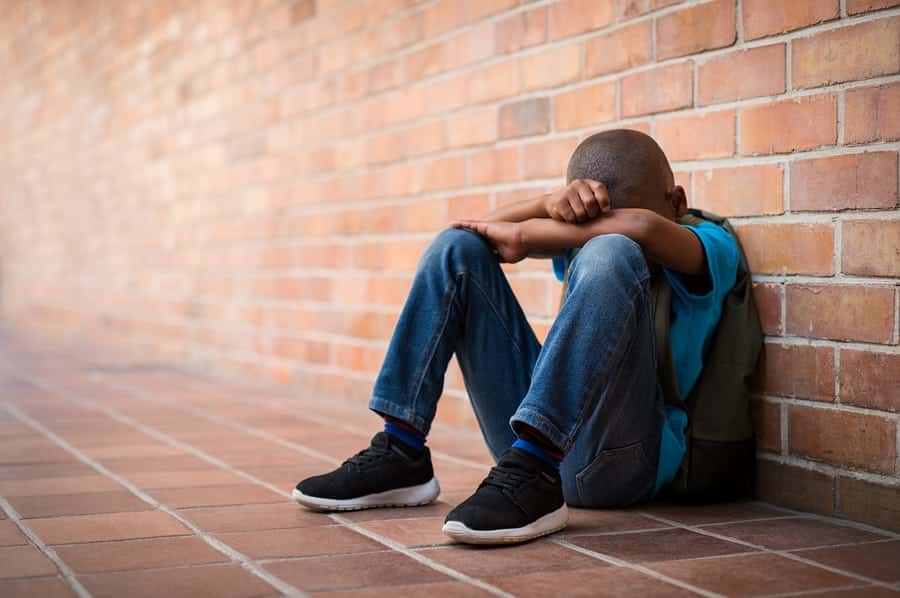Every day, parents entrust the teachers, coaches, and school counselors within their community to do their jobs and they trust these individuals with the safety and well-being of their children. That is how things are supposed to happen. But what happens when school employees betray that trust and abuse their power? What can a parent do when their child has been bullied or abused by school employees?
What Can Parents Do about abuse at school?
Chances are, most of us have seen the news headlines or heard the horror stories. A teacher humiliates a child in front of the class as a form of discipline because they are autistic. A coach targets a boy for being a “sissy.” A vice principal continually makes inappropriate comments about the teenage girl’s body when they are walking in from lunch. A school counselor initiates a sexual relationship with a teenager. There seems to be an extensive list of examples of when school employees do not fulfill their number one role- looking out for the best interest of the students. If a school employee has mistreated your child, the first thing parents want to do is find a way to make sure the behavior stops. After that, the next question they likely will ask will be some version of- Whom can I sue?
You may, on behalf of your child be able to bring a lawsuit against the person responsible for the abuse. But the reality is that teachers make very little and anything you could get from the school employee directly would not be compensation enough for the trauma your child endured. If you want to collect significant damages and send a message that won’t be ignored you can try to sue the school board or the school itself. But whether or not you will be successful will depend largely on the circumstances, on the evidence, and on which laws apply to your case.
What Types of Sexual Harassment and Bullying Can Occur?
Sexual harassment is a serious problem for students at all educational levels. Students in elementary and secondary schools, as well as vocational schools, apprenticeship programs, colleges and universities can be victims of sexual harassment. This problem is more common than you might think because many students are scared or too embarrassed to report sexual harassment…Sexual harassment can be verbal (comments about your body, spreading sexual rumors, sexual remarks or accusations, dirty jokes or stories), physical (grabbing, rubbing, flashing or mooning, touching, pinching in a sexual way, sexual assault) or visual (display of naked pictures or sex-related objects, obscene gestures). Harassers can be fellow students, teachers, principals, janitors, coaches, and other school officials. Sexual harassment can happen to girls and boys.
some examples of the most common forms of sexual harassment and bullying that students might face from a school employee:
- If a teacher or another school employee offers a student better grades or says they will forget an infringement on the rules if the students does sexual favors that is a form of sexual harassment that is often called quid pro quo harassment (which is Latin and means “this for that”). This kind of harassment can also take the form of threatening grade or other form of punishment if the sexual favors are refused by the student.
- When unwanted touching, comments, and/or gestures directed at you by a school official gets so bad it disrupts your ability to do your wok and affects your life outside the school this is often called environmental harassment. This type of harassment can also be based on a student’s failure to conform to gender stereotypes. A coach mocking a boy who isn’t athletic or a teacher picking on a girl who doesn’t wear dresses are examples of this.
- Harassment directed at a student due to their sex is also common and often is non-sexual in nature and seems relatively harmless, but when it happens time and time again from school employees the damage can be great. For example, if a teacher directs hostile comments toward female students, yells at only the girl students, says girls are never good at math, or that “girl activities” are stupid, this is also a form of sex discrimination.
- In addition, many forms of bullying or cyberbullying can take a sexual tone. An example of this is when a school official calls students sexually charged epithets, is willfully spreading sexual rumors, threatened to lower grades, and treats students poorly based on their sexual attractiveness, and uses sex in other ways to try to abuse, control, or punish the student in one way or another.
Where Can You Go For Help?
Calling the National Sexual Assault Hotline, and other helpful online and phone resources that are available to victims and their families, gives you access to a range of free services including:
- Confidential support from a trained staff member
- Support finding a local health facility trained to care for survivors of sexual assault and offers services like sexual assault forensic exams
- Someone to help you talk through what happened
- Local resources that can assist with your next steps toward healing and recovery
- Referrals for long term support in your area
- Information about the laws in your community
- Basic information about medical concerns
According to the RAINN website, the National Sexual Assault Hotline is a safe, confidential service. When you call the hotline, only the first six numbers of the phone number are used to route the call, and your complete phone number is never stored in their system. Most states do have laws that require local staff to contact authorities in certain situations, like if there is a child or vulnerable adult who is in danger.
